
Robotization - New Unlimited Possibilities, Luxury or Necessity - Photo credit: pixabay.com, Edition by Amber255 via Bitlanders.com
Usually, people see a robot as a humanoid and still waiting for the moment of a break when the robots will become part of our household but don't notice that the robotization process has long begun.
The market is seeing more and more service robots: vacuum cleaners, dogs, lawn mowers, personal assistants, hotel reception staff, and more. Robot use in agriculture and horticulture is developing rapidly. Also in the manufacturing industry, ordinary workers are replaced by robots who perform extremely hard physical work.
Automated devices that support various production processes are rapidly spreading around the world. Lithuanian manufacturing companies have also been increasingly looking for robots and related solutions in recent years. Over the past five years, the number of robots installed worldwide has grown by more than 20 percent every year.
The robots are coming, whether we like it or not, and will change our economy in dramatic ways. - Kristen Soltis Anderson
Credit: brainyquote.com
In Europe, Germany is the leader of the industry. At that time, robots in Lithuanian companies are still relatively rare. Most of the production in our country is still based on human work. Japan already has fully fledged robotic factories where the light is turned on only to make a quality photo.
How robots are changing our lives, and are we ready for them?
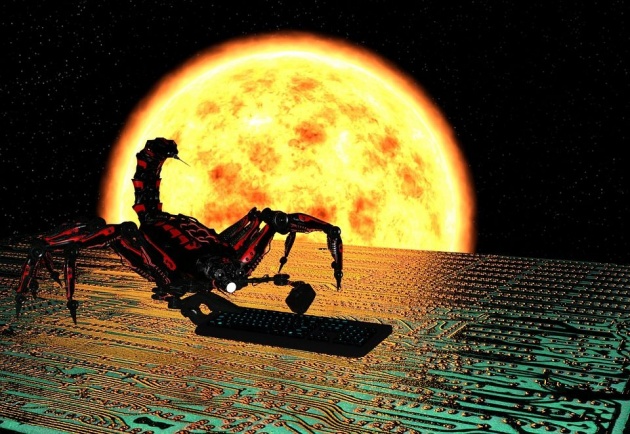
Robotic Era - Photo credit: pixabay.com
The Beginning Of The Robotic Era
Robots are an extraordinary revolution in our modern world production. More than a century ago, after electrifying the factories, no one imagined what it would change. Worldwide sales of industrial robots are growing by tenths of a percent. It is counted more than one million robots working in global factories. Scientists have promised a great future for robots for many years. However, maybe that future has come?
Robots work fast and efficiently, never get tired, do not complain, do not require wages, no social guarantees, no holidays and no mistakes in practice. Entrepreneurs are pleased with their increased earnings. Does this mean that robots are here, among us? Yes, we did not notice, we do not feel, and they are here. Time to say loudly, the robotic era begins!
Competing with robots is pointless, as they are designed to perform a specific job and perform everything faster, more accurately, more efficiently, but people also need to monitor them. The fear of robots came together with them - it was thought from the beginning that they would take away jobs or cause humanity to be destroyed. However, anxiety is not entirely justified, as new jobs are created for the development and maintenance of those robots. But of course, some professions will no longer be performed by humans.
The fourth industrial revolution that has begun on the foundation of the third digital revolution, flooding the world with computers and automating data collection, is increasingly mentioned. The new wave of change allows innovation to spread faster than before.
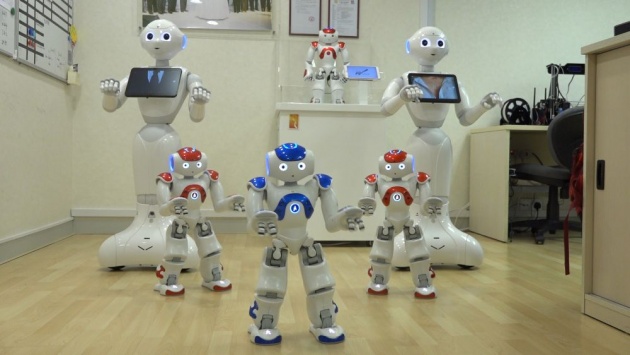
Robot technology - Photo credit: wallpaper.istriku.site
Robots Are Coming: They Will Replace Many Professions
Does it sound like a fantasy?
One-third of professions will simply disappear in the next ten years because robots will be able to do certain jobs. From birth onwards, the latest robot technology is becoming part of our daily life: children play with puppies-robots, and they learn to use smartphones when are not able to read yet.
Over the next 10-15 years, the world will change beyond recognition; robots will occupy many people's jobs. Industrial robots are already taking over some jobs, and automation is reducing the salaries of the remaining employees.
Just yesterday I heard by TV that thanks to automation processes, after 15 years, about 40 percent of American employees, more than 30 percent of Germans and British, and 20% of already very automated Japanese will lose their jobs. This news inspired me to write a blog about robotization.
In the future, all employees working in unskilled or automated mechanical works can be replaced by robots. Robots will affect such as parcel operators, postmen, sellers, insurance agents, some office workers, real estate agents, builders, and many others.
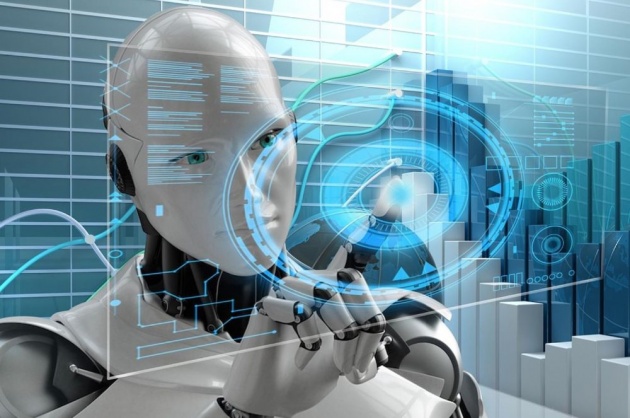
Cybernetics - Photo credit: picswe.com
So far, robots have mainly been used in the manufacturing sector. Robots have been developing for decades, and this process will move forward until the economies of the countries grow, and the financial boom will take place. The only thing that will change is the more advanced robots will be created.
However, employing expensive robots for employers is more useful: robots quickly pay off, they can work without breaks and rest days, without having to pay such high taxes. Robots are already working on jobs that recently only people could perform.
The biggest change is expected in the service sector, where, in the near future, is expected to be the biggest robotization that we have not seen before. Thanks to the advanced artificial intelligence robots will do the legal, medical work in the future. Elementary legal services can also be automated.
Extremely robust growth in robotics will be evident in the logistics sector. Another important area - household robots, which will increasingly appear in our lives, will be improved. Some robots will be targeted at helping vulnerable groups such as retirees and the disabled. Such robots will be able to accompany, show, help or bring what they need.
How Robots Are Entering Our Everyday Lives - Video credit: fwthinking via Youtube.com
Lack Of Skills And Knowledge
A few decades ago, we saw robots only in fiction films or read about them in books. Today they have become a very important, integral part of the fourth industrial revolution. The main task of optimizing production processes and robotization is one of the tools. Robots work faster and produce more.
The main reason for robotic development is the lack of specialists and knowledge. Many companies generally do not imagine what are the basics of robotics. Many people have a variety of questions. Some even ask does the robot have eyes and fingers? What kind of energy do they feed? For robot specialists, this reveals that robotics is an unexplored land for many companies.
Therefore, we should not feel surprised but educate the industrial workers, because the potential of robotization is huge, and the equipment performs heavy and monotonous work. They can work around the clock. All we have to do is to educate operators which could give the tasks for the robots. However, in many companies, the work is done by people, except when the work is harmful or physically too heavy, such as the use of welding robots or hoists that can lift much larger weights than people could do.
Companies should increase the number of robots in a targeted and proportionate way. But we should not expect quick results. First of all, we must be ready for robotization - to prepare specialists.
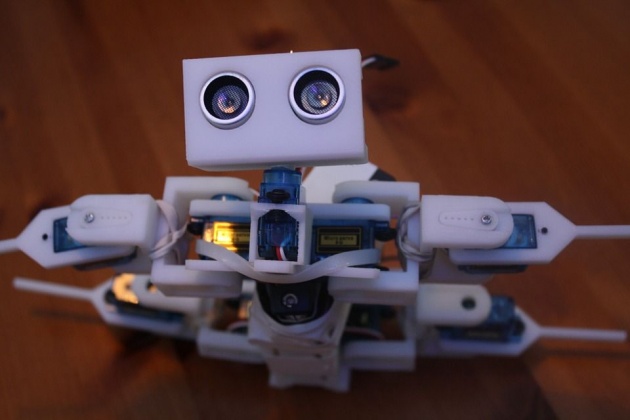
Fourth Industrial Revolution - Photo credit: Photo credit: pixabay.com
Education For Robotization
I have a hope that robotics schools are going to improve the robotization situation. The schools are already involved in the design, modeling, and programming of industrial robotic systems, and their main priority is not only technical processes but also education. Children and adults in schools learn robotics, programming, 3D graphics, and Android application development.
The current adults have played with computers, so they are well able to use them, and the current kids are getting off the screen. They want to control their computer or computer devices to produce things themselves. They are expected to be able to continue their studies at universities later on.
Professionals can be prepared very quickly, and young people learn quickly. Many entrepreneurs still believe that cheap labor can replace artificial intelligence or robotics. This thinking should be changed as soon as possible. Only new solutions lead companies forward, so it is necessary to motivate the robots creating employees.
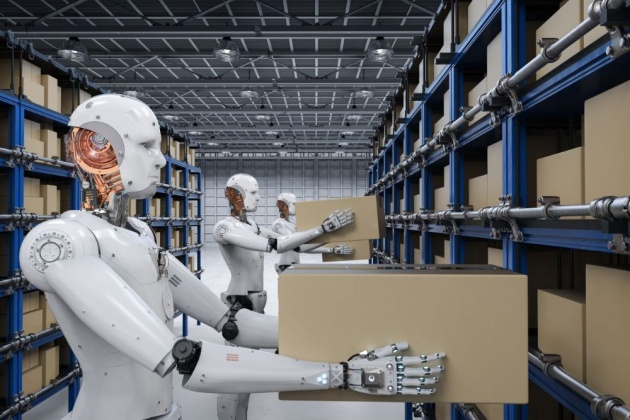
Robots possibilities - Photo credit: twitter.com
It is very important that a person would like to learn new things and enjoy what he does. Of course, the market requires not only the desire but also the basic, practical knowledge of automation, programming, mechanical engineering.
Robotics specialists must be highly competent and knowledgeable in their work. In the future, specialists will be on several levels: serving equipment-robots in the current period; developing robotic-automation lines and integrators; hired specialists to eliminate complicated failures.
The Robots Are Becoming Smarter And Smarter
In the past, the use of robots in the industry was a surprise. But now their use is not a smart innovation, but a necessity dictated by the time. While industrial robots are expensive technology, some companies use them widely. Areas, where robots are replacing people, are rapidly growing. If previously, the work of the robot was to take an item and move it to another place, today's robots are already actively involved in the entire production process. They are used not only in cases where it is necessary to drill holes but also in welding, to make various seams in the production process.
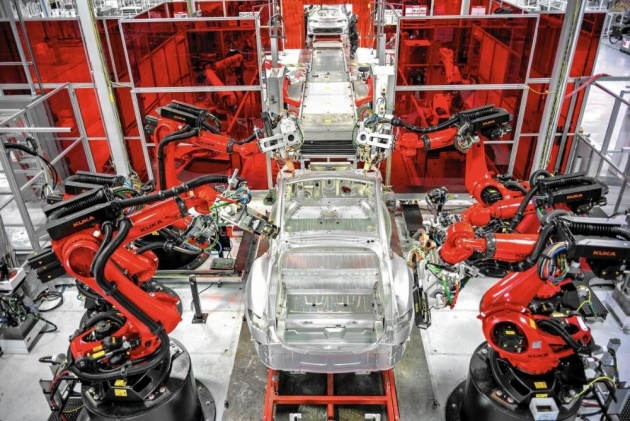
Robots in our life - Photo credit: oldjimpacific.blogspot.com
One of the main advantages of employed robots is the excellent quality of work. Previously, they replaced people where the work had to be done under adverse conditions or where they had to work with very heavy weights. Today's technology allows ensuring excellent quality of automated process' products. The arrival of robots in the industry also means that production cycles can change - robots don't get tired, so you can plan your work more intensively.
The development of the robots used in the industry is still hampered by their price. Therefore, entrepreneurs often choose to robotize only certain production lines or production operations in their companies and leave part of the work to the hands of the human.
In the past, the development of robot training programs was a major problem. Now the situation has changed, and the complexity of programming has been replaced by a new trend. Today, robots are trained more easily: taking physically by a nozzle, they are shown the operations they need to do, and they "remember" what to do. So, all the debugging processes have accelerated. It is estimated that if the robot would only work two days a week, it would not be worth the cost of programming. Accelerated robot training has made their application more flexible.
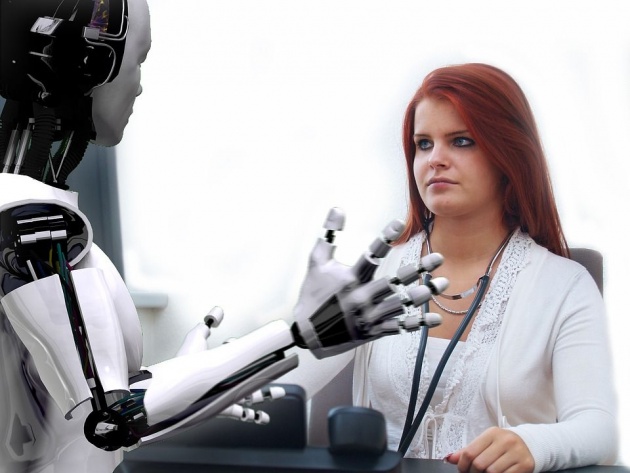
Robots possibilities - Photo credit: pixabay.com
The Future Of Robotics Is Extremely Bright
At present, the need for robotization in the countries is growing very fast, and the prospects in the world are very high. Now supply cannot satisfy demand. Knowing the fact that many countries in this area is still far behind the level of world robotics, the only conclusion is that robotization has a very bright future.
It is very likely to see the small logistics robots who are driving freely on the street, replacing the rushing couriers. To order a pizza at the office or waiting for a parcel, you will probably meet a small wheeled envoy at your door, who will give you his cargo.
It is likely that robots will first take the most boring, dirty and dangerous jobs - wherever people do not want or cannot work.
Look this funny video. Yes, it looks funny today, but maybe after some years, people get used to robots in their routine life?
Robotization - Video credit: Jayamala AN via Youtube.com
Robotics - The Different World
The discussion about robotics is inseparable from the topic of artificial intelligence. There is also a certain fear of artificial intelligence and public distrust. These problems need to be solved if we really want to bring robotics to a whole new level.
Artificial intelligence plays an important role for future robotics. It will allow robots to learn quickly, understand the language of the people, logically reason, adapt to different tasks, orientate themselves in the environment, understand and help people. The robots currently being developed still have limited opportunities to learn new tasks. Not long ago I read about the cloud robotics idea which would allow all robots in the world to connect to a common network. Specialists could join it through individual robots and train them to perform specific tasks.
It's no secret that many people simply distrust robotics. There are also considerations that robots can eventually change to 90 percent of humans' works. Naturally, people worry about this. How to deal with it? Myself I see opportunities, not dangers.
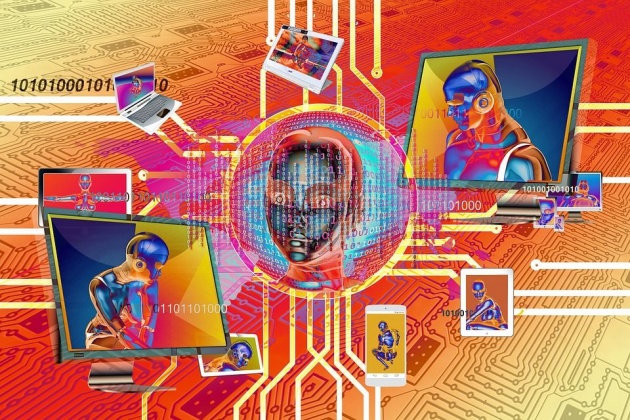
Cybernetics - Photo credit: pixabay.com
Of course, some people will be more affected by robotization; they will need lear to focus on more complex tasks. Therefore, all opportunities for continuous improvement and learning, retraining or becoming managers of these robots must be created. Robot technology comes unstoppable, and we need to learn to adapt quickly to changes.
In the close future, many areas will be completely different. At the moment almost 3 billion people use the Internet, and it is expected that 8 billion people will use it in the future. One can imagine how the world will change when all people have access to all the information in the world, how many new things will be created. Robots will be used everywhere; they will be able to learn quickly, easily navigate the environment, understand clearly what are being asked of.
On The Final Note
Robotization is no longer science fiction, but an inevitable choice for businesses.
Robotization is expanding rapidly both in logistics and in the home. This process is regulated by the market and people's needs. The business aims to work as efficiently and effectively as possible, and people want to live comfortably and easily, so robots are designed to help us. Domestic robots are simpler, less demanding, and their number is growing tens more than in the logistics or manufacturing industry.
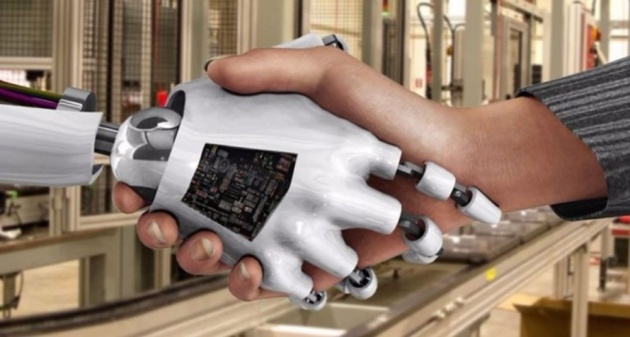
Robots in our life - Photo credit: twitter.com
The fourth industrial revolution sends out a clear message: the future of technological progress - digitalization and the widest possible use of easily trained robots. The message of the scientists was realized by the businessmen, so the modern production and other industrial buildings are no longer imaginable without robot technology.
Robots will harvest, cook, and serve our food. They will work in our factories, drive our cars, and walk our dogs. Like it or not, the age of work is coming to an end. - Gray Scott
Credit: brainyquote.com
ROBOTS ARE COMING TO CHANGE OUR LIFE
***************************************************************************************************
Thank you for stopping by and reading my blog.
2018, All Rights Reserved.
You are very welcome to join Bitlanders and share your valuable knowledge and opinion.
***************************************************************************************************



